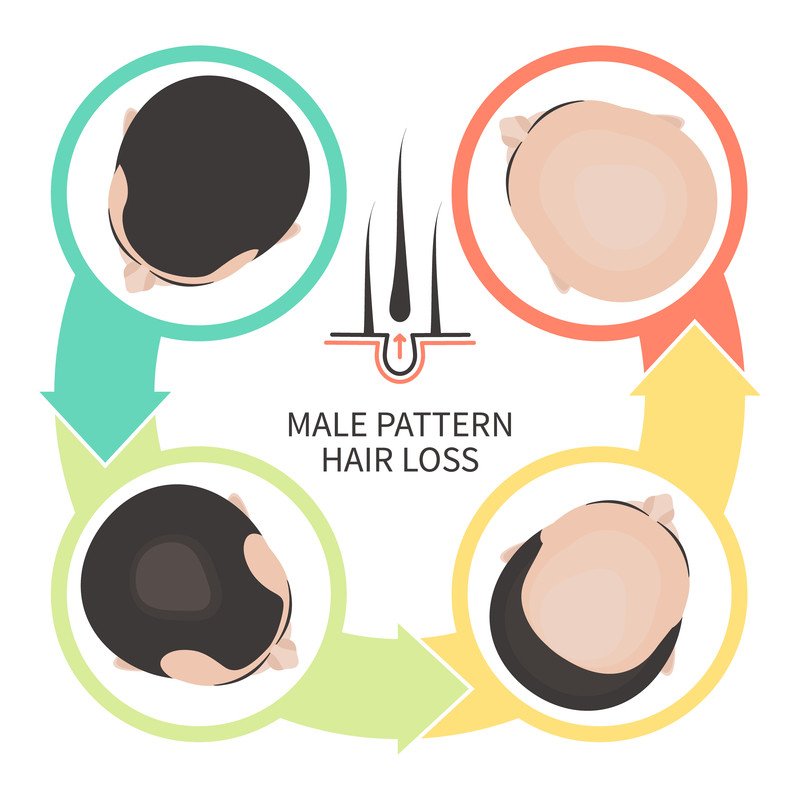Table Of Content

She has also written a book profiling young female activists across the globe and is currently building a community of such resisters. Some forms of hair loss are hereditary or caused by illness, so there’s no foolproof way to prevent clumps from falling out. Maybe you even notice clumps of hair in the bristles of your brush after your daily brushing. A rather alarming number of strands that have drifted from your scalp. Losing your hair is not usually anything to be worried about, but it can be upsetting. If your symptoms are bothering you, your primary healthcare provider, a board-certified dermatologist, or in some cases, a pharmacist may be able to help.
Can hair loss be reversed?
You can prevent hair loss caused by chemical hair treatments by not using them. Anagen effluvium causes large amounts of hair to rapidly fall out during the anagen (growth) phase of the hair cycle. It may cause hair to fall out from the head, as well as from other parts of the body, including the eyebrows and eyelashes. Physical, mental, or emotional stress, along with certain medications, can cause larger-than-normal amounts of hair follicles to push into the resting phase of the hair cycle. When this occurs, as much as 70% of scalp hair can fall out, often in handfuls, around two months after the trigger. Most baldness is caused by genetics (male-pattern baldness and female-pattern baldness).
Itchy Scalp and Hair Loss: What Causes Both Symptoms?

It’s also the most common cause of hair loss, affecting up to 50% of people. There are several types of hair loss, some are common and some are rarer, and each with different underlying causes. While it’s more prevalent in older adults, anyone can experience it, including children.
health benefits of lemon juice

Lupus often causes extreme fatigue, headaches, oral ulcers, and painful, swollen joints. Many people develop a butterfly-shaped rash across the bridge of the nose and become more sensitive to the sun. Other symptoms include fever, swelling in the feet and hands and around the eyes, chest pain, and anemia.
How much hair loss is normal in a day
But if your follicles become damaged, the hair loss may be permanent. See your dermatologist if you notice this type of hair loss. The sooner you start treatment, the better the chances for hair regrowth. Traction alopecia is a type of hair loss that's brought on by the way you style your hair.
Finding the Best Shampoo for Hair Loss - Health Essentials
Finding the Best Shampoo for Hair Loss.
Posted: Wed, 13 Sep 2023 07:00:00 GMT [source]
As you age, some follicles no longer grow new hair, leading to a thinner look or bald patches. Wherever it happens, excessive hair loss can be a troubling thing to deal with. If you’ve noticed clumps of hair falling out recently, here’s what could be going on inside your body and what you can do to treat it. Skin conditions, infections, parasites like lice, and other factors can cause scalp pruritus (itchiness). Some conditions can cause an itchy scalp and hair loss, such as tinea capitis (scalp ringworm).
Is it possible to stop hair loss indefinitely?
From straight to curly, thick to thin: here's how hormones and chemotherapy can change your hair - The Conversation France
From straight to curly, thick to thin: here's how hormones and chemotherapy can change your hair.
Posted: Thu, 11 Jan 2024 08:00:00 GMT [source]
It is natural for a certain amount of hair to shed every day. However, some individuals will experience further hair loss. Hair loss is a symptom of more than 30 diseases, including polycystic ovary syndrome, ringworm on your scalp, thyroid disorders, and autoimmune diseases. You can also lose hair when you have the flu, a high fever, or an infection. Hormonal birth control like oral contraceptives, implants, injections, vaginal rings, and patches can trigger hair loss if you have a history of it in your family.
Can you tell if you are losing too much hair?
People may also lose hair when clothing rubs against the skin, which is known as frictional alopecia. As with medical conditions, physical changes that stress the body, especially if they cause hormonal changes, can lead to excessive hair shedding. This usually happens a few months after the stressor occurs and stops when the body's hormone levels have readjusted. A healthy balanced diet is also important in stress reduction too as it can support a healthy immune system, repair damaged cells and even reduce elevated cortisol levels. Some studies suggest that telogen effluvium can also be connected to low levels of iron, so include iron-rich foods like leafy vegetables, lentils and liver where you can.
“Our body needs certain vitamins and nutrients to build hair,” notes Dr. Khetarpal. Your shorter hairs — like eyelashes, arm and leg hair, and eyebrows —have a short anagen phase (about one month). Your scalp hair can last up to six years or even longer.
Too much shampooing, styling, and dyeing can harm your hair, leading to hair breakage and loss, Dr. Goldenberg says. Often, it’s a combination of treatments—keratin, coloring, and blow-drying, for instance—that does the damage. If you’re experiencing hair loss and your hair keeps falling out, it may be for one of the following reasons. Hair loss can also be a side effect of certain medications. The medication works by prolonging the growth phase of hair, giving your hair more time to grow out. If you are taking a new medication and notice your hair is falling out or thinning, reach out to your healthcare provider.
Whatever the cause of your hair loss, seeking medical attention from your primary care doctor or a dermatologist can help you identify underlying causes. Treatments for hair loss are more likely to be successful if started early. It’s best to see a healthcare professional for any unexplained hair loss so they can determine the underlying cause and best course of treatment.
Having excessive hair fall out, or shed, can be upsetting and stressful. However, it is common, and in most cases, it is also temporary. If left untreated, the hormonal changes caused can stop new hair strands from developing. Both overactive and underactive thyroids can make hair fall out in clumps. It can also go hand-in-hand with autoimmune conditions, like alopecia. Stress — like that from a traumatic event, a health issue (like surgery), rapid weight loss, or pregnancy — can be a big factor in telogen effluvium.
However, many people have reported losing hair at times of extreme mental stress or anxiety. And hair loss for other reasons can still be stressful. Perhaps one of the most common hormone-related causes for hair loss is a thyroid problem. Both too much thyroid hormone (hyperthyroidism) and too little (hypothyroidism) can lead to hair loss.

No comments:
Post a Comment